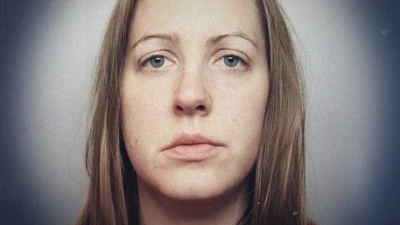We've updated our Privacy and Cookies Policy
We've made some important changes to our Privacy and Cookies Policy and we want you to know what this means for you and your data.
At-a-glance: Scottish government bills
- Author, Andrew Black
- Role, Political reporter, В鶹№ЩНшКЧТіИлїЪ Scotland
The Scottish government has unveiled its last legislative programme before the May 2011 Holyrood elections.
The list includes plans to scrap the "double jeopardy" rule which prevents a person standing trial twice for the same crime and the crucial Budget Bill, setting out ministers' spending plans while major spending cuts loom on the horizon.
Here is a look at what was announced by First Minister Alex Salmond:
Budget Bill
This is the key piece of legislation without which the Scottish government cannot function.
Scottish ministers still do not know the scale of cuts to Scotland's block grant from the Treasury - they will only become clear when the UK government delivers its Comprehensive Spending Review next month.
However, Alex Salmond has pledged to bring forward a Budget Bill within weeks of that announcement, with MSPs expected to vote on the legislation later.
He argues that bringing forward a "back-of-the-envelope budget" sooner is wrong.
Although the full extent of the spending reductions have yet to be unveiled as part of UK government plans to tackle the deficit, the SNP has warned Scotland faces ВЈ3.7bn of cuts over the next four years.
Double Jeopardy
The Scottish government intends to scrap the rule, known as double jeopardy, which prevents a person standing trial twice for the same crime.
Apart from anything else, this could lead to convicted killer Angus Sinclair standing trial for a second time over the World's End murders.
Double jeopardy has already been dispensed with in England and Wales.
Scottish Water Bill
A surprise announcement in the legislative programme, Alex Salmond unveiled a vision to "evolve" Scottish Water from a utility to an agency which would play a key role in driving the economy and protecting the environment.
The proposals would see Scottish Water gain more powers to make money and could, for example, sell expertise or generate renewables without a cost to the taxpayer.
The Scottish government has faced calls to save hundreds of millions of pounds by selling off or mutualising Scottish Water but, under this plan, ministers say making the body "financially neutral" means the "success story" that is Scottish Water can be kept in public ownership.
Under the plans, Scottish Water will also be charged with fostering humanitarian expertise, such as that provided by the Stockholm International Water Institute.
Private Rented Housing Bill
Ministers say there are many good private landlords in Scotland, but also recognise action is needed to tackle the rogue ones.
Under this bill, councils would get more powers to deal with unscrupulous landlords who operate outwith the law and make tenants' lives a misery.
Long Leases Bill
Another housing-related piece of legislation, this bill implements recommendations of the Scottish Law Commission by simplifying property law.
Crucially, it converts ultra-long housing leases - of which there are about 9,000 - to ownership, matched by compensation paid to landlords by the tenants.
Landlords would also be able to preserve sporting rights in relation to game and fishing, where applicable.
Local Electoral Administration Bill
This bill introduces further reforms to running elections, following the fiasco at the 2007 Holyrood polls when problems led to the suspension of overnight counts and many spoilt ballot papers.
This bill would establish an electoral management board to improve the administration of council elections.
Public Records Bill
Poor record-keeping by public authorities in the past has caused problems such as the inability of the victims of historic child abuse in care homes to gain access to information on what happened to them.
Under the bill, named public bodies - such as councils and the NHS - will be required to implement management plans to ensure all relevant documents are retained.
Health (Certification of Death) Bill
In Scotland, 60% of Scots who died in 2009 were cremated, but the process currently needs to be certified by two separate doctors and involves the payment of fees.
This bill will bring in a new, single system and cut out paperwork and abolish fees - although there will be a "modest" fee to cover the cost of the new death certification system.
Forced Marriage Bill
This bill does what it says on the tin - bring in measures to protect people from being forced to enter into marriage.
Ministers say the legislation will "empower and protect" vulnerable women and men against abuse and violence.
Reservoir Safety in Scotland Bill
Ministers say new laws are needed to protect the public from the risk of flooding from reservoirs - always a prospect in the winter months - without over-burdening owners with red tape.
The bill requires reservoirs to be classed by threat, while others deemed to be "low risk" will be de-regulated.
Top Stories
More to explore
Most read
Content is not available








